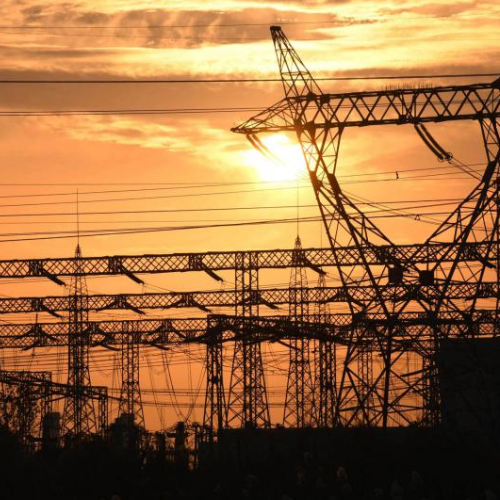The United States has stopped allowing Iraq to buy electricity from Iran, making Iraq’s power problems even worse. This decision is part of the US government’s efforts to put pressure on Iran by cutting off its sources of money. The US wants Iran to stop developing nuclear weapons, missile programs, and helping armed groups in the region.
Since 2018, the US had been giving Iraq special permission to keep buying electricity from Iran, even though Washington had banned most trade with Iran. This permission, known as a waiver, allowed Iraq to import power because the country does not produce enough on its own. But now, under President Donald Trump’s renewed tough policies against Iran, the US has decided not to extend the waiver.
A spokesperson from the US embassy in Baghdad said that the US wants Iraq to find other ways to generate electricity and stop depending on Iran. However, Iraqi officials say this is not possible in the short term. Iraq has struggled for years with power shortages, despite being rich in oil and gas. Wars, corruption, and poor management have left the country unable to meet its own electricity needs.
Iraq Faces Severe Electricity Shortages
Iraq depends on Iran for a large part of its electricity supply. The country directly imports electricity from Iran and also buys Iranian gas to run its power plants. Now that the waiver has ended, it is unclear if Iraq can continue importing gas from Iran, raising fears of even bigger blackouts.
Iraq’s Severe Crackdown: 5 Banks Prohibited from Dollar Transactions
The US embassy claims that only about 4% of Iraq’s electricity comes from Iranian imports. But an official from Iraq’s Ministry of Electricity disagrees, saying that without Iranian gas, Iraq could lose more than 30% of its electricity.
Iraq’s electricity problems are already severe, and this new crisis makes things worse. Many people in the country already struggle with long power cuts, especially in the summer, when temperatures can rise above 50 degrees Celsius (122 degrees Fahrenheit). Without enough electricity, people have to rely on private diesel generators, which are expensive and polluting.
For the past two months, Iranian gas supplies to power plants in Baghdad and central Iraq have already stopped, while supplies to the south have been unstable. Three Iraqi energy officials told reporters that there are no immediate alternatives to replace Iranian energy imports, meaning that Iraqis will likely face even longer and more frequent power outages.
Iran Responds to the US Decision
The US decision to end the waiver comes just days after President Trump sent a letter to Iran’s leaders, suggesting he wanted to restart talks over a new nuclear deal. But Iran’s top leader dismissed the offer, calling the US a “bully” that only wants to impose its own terms rather than negotiate fairly.
The Billion-Dollar Fuel Smuggling Network in Iraq Benefiting Iran
Despite this, Iran’s representatives at the United Nations have indicated that they may be open to discussing certain issues. However, they have made it clear that they will never agree to completely give up their nuclear program.
The 2015 nuclear deal, which was agreed upon when Barack Obama was US president, had promised to lift sanctions on Iran in exchange for limits on its nuclear activities. However, when Trump became president, he abandoned the deal and reimposed sanctions on Iran. This move led Iran to slowly reduce its commitments to the agreement.
US officials believe Iran could now build a nuclear weapon in just a few weeks if it wanted to. However, Iran insists its nuclear program is only for peaceful purposes.
The latest decision to stop Iraq from buying electricity from Iran is another move in the ongoing tensions between Washington and Tehran. But for millions of Iraqis, the immediate concern is how they will survive without enough electricity, especially with summer approaching.



